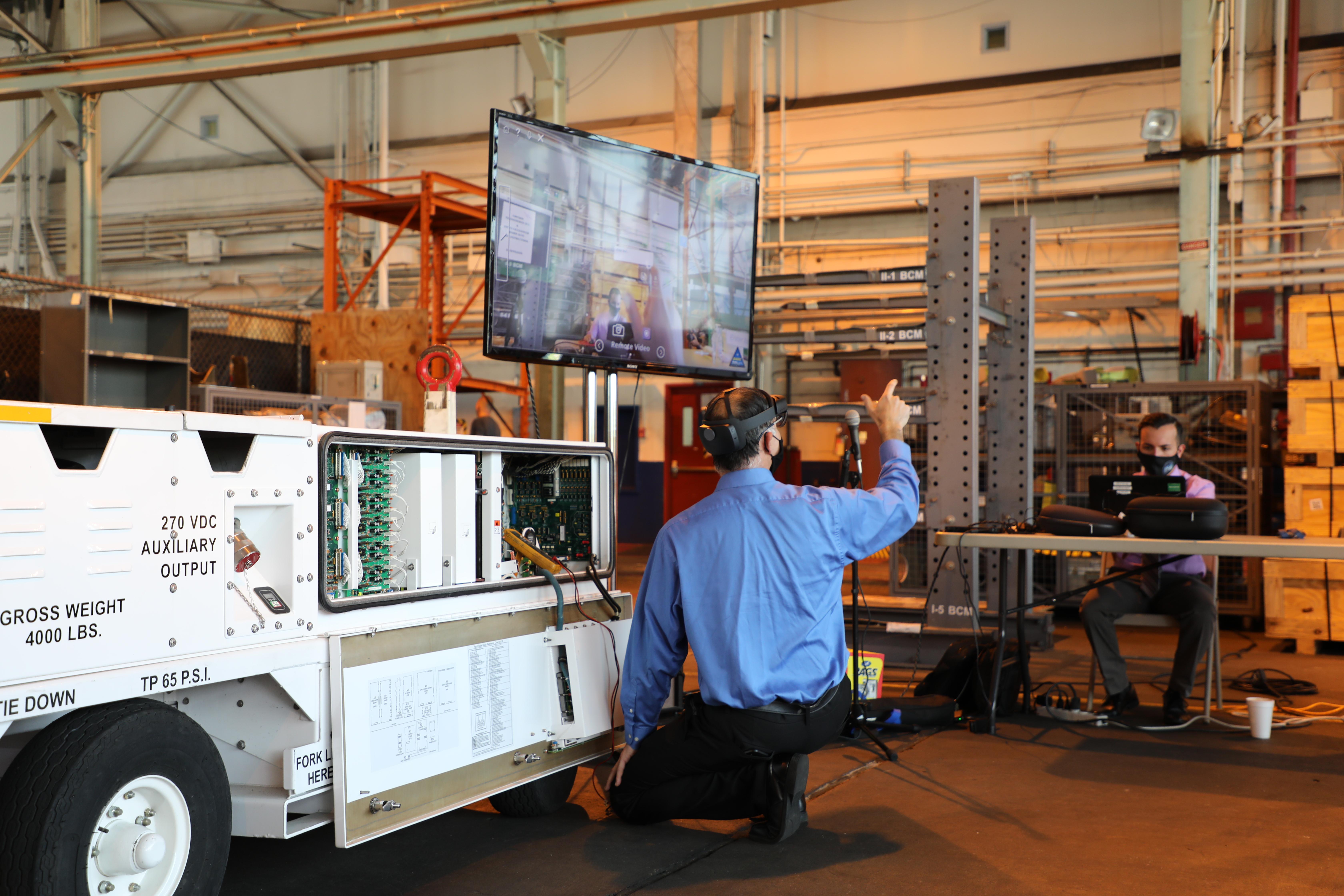
Technology is moving fast, and voice tech is really shaking things up. It's not just about talking to our gadgets anymore; it's about changing how leaders do their jobs. Picture this: leaders using voice tech to make smarter, more caring decisions while keeping communication smooth and teamwork strong. A study says over half of households might have smart speakers by 2025, showing how quickly voice tech is catching on. But what does that mean for future leaders? Let's take a look at how voice tech is shaping leadership today. We'll check out how it's used in different fields and think about the ethical stuff too. So, let's see how voice tech might change how leaders work and make decisions in the future!
Summary: Dieser Artikel beschreibt die aktuellen Innovationen in der Sprachtechnologie und ihre Rolle in der Führungskräfteentwicklung, einschließlich Anwendungsfällen, ethischen Überlegungen und zukünftigen Auswirkungen auf Führungsstile und Entscheidungsfindung.
Voice Tech Innovations: Current Landscape and Future Prospects
Understanding Advancements in Voice Technology
By 2025, voice technology has made significant strides. Thanks to advancements in AI, voice agents now utilize speech recognition, natural language processing (NLP), and conversational AI to interact with us more naturally. These agents have evolved beyond simple assistants; they now understand our habits, context, and even emotions.
Key developments include:
- Text-to-Speech (TTS)
- Speech-to-Text (STT)
- Voice Cloning
Microsoft Azure is at the forefront with its neural voices and specialized transcription models, making voice interactions feel more natural and precise. These intelligent voice assistants can adapt their speech based on our emotions or environment—such as speeding up when we're in a hurry or simplifying language when it's noisy.

Innovative Applications of Voice Tech in Industries
Recently, voice technology has seen rapid growth in sectors like restaurants, healthcare, and sales. The focus is on making conversations authentic and practical. New AI voice agents are improving by collaborating with developers and learning continuously, resulting in more personalized and adaptable interactions.
Businesses are integrating these AI assistants into their systems, allowing them to scale and maintain customer satisfaction through easy adoption and cross-platform compatibility. For example, you can initiate a conversation on your smartwatch and seamlessly continue it on your smart speaker.
These assistants are intelligent enough to adjust their responses based on the context, such as urgency or background noise. They can even automate frequent tasks like scheduling calls or taking notes, leveraging their understanding of our preferences.
In 2024, Microsoft Azure Speech Service introduced over 40 new neural voices and languages, utilizing specific transcription models like Dragon Legal and Medical. This advancement has improved speech-to-text accuracy by approximately 15%, showcasing the transformative potential of voice technology in enhancing everyday life—from improved customer service to more efficient business operations.

The Role of Voice Tech Innovations in Leadership Development
Enhancing Emotional Intelligence with Voice Tech
Voice technology is revolutionizing how leaders connect by enhancing emotional intelligence with innovative tools. It simplifies multilingual meetings, breaking down language barriers and encouraging global collaboration. Leaders can conduct meetings in various languages, fostering an inclusive environment where everyone feels emotionally connected. Tools like Google Assistant and Amazon Alexa facilitate natural conversations and provide real-time updates, making communication quicker and more responsive.

With voice technology, leaders can keep their hands free and multitask in dynamic settings. AI voice assistants offer smart interactions and real-time translations, smoothing global communication by addressing language differences. Building a leadership voice involves character, context, clarity, curiosity, and connection—areas where voice tech seamlessly integrates to enhance communication and emotional intelligence.
AI-Driven Coaching for Leadership Skill Development
AI-driven voice technology plays a crucial role in coaching and developing leadership skills. It manages routine tasks like scheduling, reminders, and calendar management, allowing leaders to focus on strategic decisions and personal growth. Additionally, it integrates with other applications to streamline tasks and boost productivity through hands-free business controls.
Voice biometrics add a layer of security by using unique vocal features for secure access to sensitive information. AI coaching through voice tech aids leaders in honing their skills with quick, natural conversations, real-time feedback, and a deep understanding of context, thereby supporting better communication and decision-making. Leadership programs emphasize skills such as coaching (beyond performance management), influencing, decision-making, and shared responsibility. AI voice technology provides tangible support and reinforcement in these areas.
The global speech recognition market is projected to reach $25 billion, with AI tools enhancing communication across various industries. Real-time transcription and translation streamline global communication, essential for leaders managing multilingual teams. These technological advancements promote inclusion, efficiency, and secure management of leadership responsibilities, aiding leaders in navigating complex, global work environments.

Use Cases and Industry Applications
Voice Tech Innovations Across Industries
Voice technology is revolutionizing various sectors, enhancing operations and improving customer interactions. In the automotive world, voice assistants are streamlining the driving experience. Drivers can effortlessly manage navigation, music, and climate settings without lifting a finger from the wheel. This advancement not only elevates safety but also simplifies the driving process. Additionally, voice assistants provide real-time traffic updates and route suggestions, which are pivotal for the evolution of self-driving vehicles. By integrating these systems, trust in AI increases, making travel safer and more efficient.

In the eCommerce and retail spaces, consumers are gravitating towards voice assistants, with usage being about 15% higher than chat for quick product searches. A notable example is Nike’s collaboration with Google, enabling customers to purchase Adapt BB sneakers through voice commands—selling out in just six minutes. This highlights the transformative impact of voice tech in retail. Voice search is also gaining traction, with 153 million Americans projected to use it by 2025, marking an 8.1% increase from 2022. Globally, approximately 20% of people utilize voice search, and there are around 8 billion voice assistants in operation—surpassing the world population!
In healthcare, voice AI is enabling doctors to reduce time spent on paperwork by converting spoken notes into structured data. This shift allows for more patient interaction and personalized care. Hospitals leverage these assistants to aid patients in symptom checking, medication reminders, and appointment scheduling, thereby enhancing engagement and efficiency in care delivery.
Voice Tech in Leadership and Enterprise
Voice AI is also emerging in enterprise leadership settings, managing routine tasks such as communication, scheduling, and providing quick data summaries. Leaders can conduct more effective meetings with voice-activated note-taking and action item tracking. This technology accelerates decision-making by offering easy access to analytics and reports through simple voice queries. Furthermore, scenario-based leadership training employs voice AI to simulate real-world interactions, thereby enhancing executive communication skills and crisis management capabilities.
Ethical and Practical Considerations
Ethical Challenges in Voice Tech Innovations
Synthetic voice technology presents several complex ethical challenges. A primary concern is the potential for misuse. With minimal data, it's possible to clone a voice, leading to impersonation and unauthorized use. This raises significant questions about consent and transparency. Utilizing public audio without permission can infringe on privacy and may be exploited for scams or spreading misinformation. Additionally, biases in voice models could exclude underrepresented groups or reinforce stereotypes, such as assigning voices based on gender without providing a choice.

Accountability is another challenging issue. If synthetic voices are used for harmful purposes, who is responsible? Current laws may not adequately address AI-generated content. To prevent misuse, obtaining informed consent and maintaining the privacy of voice data is crucial. Voice data is highly sensitive, necessitating robust privacy measures to prevent identity theft. Utilizing AI voices without the original person's consent can be illegal, leading to significant ethical and legal complications. New guidelines and legislation are emerging to promote greater transparency, accountability, and fairness in AI voice technology.
Adapting to Voice Tech Innovations in Workplaces
As voice technology becomes increasingly integral in the workplace, businesses must prepare. New regulations are being introduced that require explicit consent before employing someone's voice in AI systems. Tech companies are establishing protocols to prevent the misuse of AI voices and to empower voice actors with control over their voice data. Balancing technological advancement with ethical considerations involves transparency about data sources, obtaining consent, and implementing legal safeguards to prevent unauthorized voice cloning.

AI voice tools have the potential to complement human efforts, supporting rather than replacing voice actors through licensing agreements that compensate voice owners. Educating individuals about these tools and associated risks, such as deepfakes, is essential. Establishing consistent ethical standards globally can help ensure that AI voice systems are secure and used responsibly.
Future Impact on Leadership Styles and Decision-Making
Voice Tech Innovations Transforming Leadership Styles
Voice technology is set to transform leadership styles, making them more inclusive and participative. With voice tech, democratic leadership can receive a boost by making decision-making more open. Employees can easily contribute their ideas using voice commands and natural language interfaces, fostering a more participative atmosphere.
Imagine a tech company utilizing voice-activated platforms, allowing team members to share feedback during meetings without disrupting the flow.
Even autocratic leadership might evolve with voice tech, as it enables leaders to issue clear, instant commands and receive real-time feedback. This is particularly beneficial in high-stakes environments like manufacturing, where precision and control are paramount.
Conversely, laissez-faire leadership can thrive by empowering skilled employees to manage tasks independently with voice tools. This approach can ignite innovation and enhance job satisfaction by providing more autonomy.
Voice Tech Enhancing Decision-Making Processes
Voice technology is revolutionizing decision-making by accelerating communication and data access. Leaders can obtain information hands-free and in real-time, leading to more informed decisions. Voice assistants facilitate streamlined group decisions in democratic settings by enabling quick and easy group polling and feedback collection, thereby reducing decision-making time.
In urgent scenarios, such as a manufacturing crisis, voice tech aids autocratic leaders by allowing for immediate command execution and updates, bypassing typical delays. By 2025, voice AI agents are anticipated to handle complex tasks like managing FAQs and processing orders, significantly impacting customer service and sales. This is crucial as the voice tech market is projected to reach $53.67 billion by 2030, with a growth rate of 14.6% annually, underscoring its strategic role in leadership and business.

Voice technology also enhances predictive decision-making by converting unstructured voice data into actionable insights. This provides leaders with detailed insights beyond conventional metrics, improving efficiency and strategic choices. As voice tech continues to advance, its impact on leadership styles and decision-making processes will be substantial.
FAQ Section
Impact of AI Voice Technologies on Future Leadership Styles
AI voice technology is poised to revolutionize leadership styles by enhancing the way leaders interact with digital assistants. This advancement promises smoother and more intuitive communication, enabling leaders to make decisions more effectively. As AI voice tech becomes more sophisticated, it will evolve into a partner that understands habits and emotions, providing personalized support.
Imagine instructing your AI assistant to document meeting highlights and schedule follow-ups without any manual input. The assistant will recognize your voice and adapt to your mood and context. Moreover, with advanced voice recognition and security features, leaders can access information and systems hands-free, significantly boosting convenience and efficiency.
These transformations are expected to drive increased investment and adoption of voice AI in both professional and personal spheres, as highlighted by MaestroLabs.
Key Skills for Leaders to Complement AI Voice Tech Advancements
To stay ahead with AI advancements, leaders must develop strong digital competencies, especially in AI voice technology. Understanding how these tools function is essential for their effective utilization. Despite AI's ability to interpret emotions, emotional intelligence remains critical for leaders to apply this information judiciously.
Adaptability and continuous learning will be vital as AI voice technology rapidly evolves. Leaders should also excel in data comprehension and strategic thinking, enabling them to integrate AI insights with human judgment and ethics. A leader proficient in digital tools and empathetic might use voice AI to assess team sentiment in meetings, adjusting their approach ethically.
These insights are supported by MaestroLabs and TS2 Tech.
Enhancing Leadership Development with AI Coaching
AI coaching offers significant potential to enhance leadership development by providing real-time, personalized feedback. By analyzing voice tone, language, and interaction patterns, AI coaching helps leaders improve communication and emotional intelligence.
Utilizing speech-to-text and natural language processing tools, AI coaching can dissect leadership discussions, facilitating reflection and improvement. It aids in developing habits and strategies tailored to individual challenges. For instance, an AI coach might evaluate a leader's presentation, offering advice on pacing and tone, and suggesting ways to be clearer and more engaging in future instances.
This approach to leadership development is further elaborated by MaestroLabs and Deepgram.